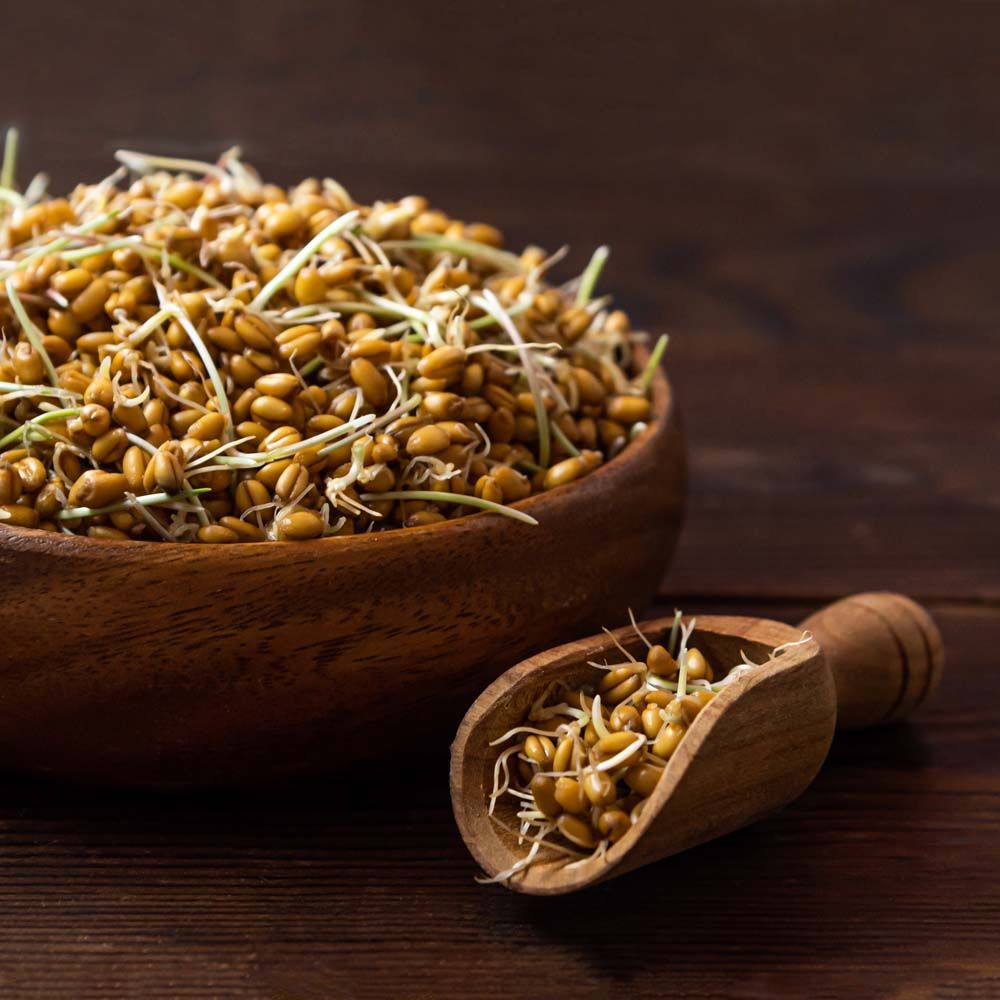Fermented And Sprouted Grains For Chickens
A healthy gourmet meal for your flock


Everyone keeping chickens wants the best diet for their flock. High-quality feed, scratch grains, and fresh veggies are the core feed ingredients of any healthy, happy coop; but maybe it’s time to think “outside the bag” in the form of fermented and sprouted grains.
Fermented feed
Ask any health food junkie, and they will tell you that fermented grains are the answer to a healthy lifestyle. But it’s not just for humans, as they are like a superfood for our feathered friends as well. These enhanced grains are packed with probiotics that promote a healthy gut… and a healthy gut means a happy chicken!
These probiotics help improve digestion, boost the immune system, and even enhance nutrient absorption to allow for shinier feathers and overall look of health.
So, how do you make fermented feed? Don’t be intimidated by the word “fermented.” Fermentation happens with the simplest of ingredients: your regular chicken feed and water. That’s it!
Simply grab a bucket that has a loose-fitting lid and fill it about halfway with chicken feed
Pour in water until it sits about 2 inches above your feed
Give it a little stir and pop the lid on, then set the bucket in a cool, dark area
Check on your concoction every day and add more water if necessary (the grain will swell a lot!). The mixture should never go dry. Add a bit more water if necessary
It will start fermenting after 24 hours. The mix will be ready by the 3rd day.
The mix should be soupy and a bit bubbly, and should have a rather fruity smell.
Toss it on a tray and watch your chickens go crazy!
Fermented feeds can also help a bit with your feed bill; the soaked grains are easier for your chickens to digest and are more filling, so your chickens will eat less.
Sprouted grains
A bit different but just as impactful are sprouted grains. They're like tiny powerhouses of nutrition. When grains are sprouted, their nutrient content skyrockets. Vitamins, minerals, and enzymes become more readily available and easier to digest. Sprouted grains are also lower in anti-nutrients—compounds that interfere with absorption of nutrients—making them even more beneficial for our chickens.
Making sprouted grains is just as easy as making fermented ones.
You will need any kind of whole, raw grain: barley, buckwheat, corn, millet, quinoa, rice, etc.
Soak your grains overnight in a bowl
Get a jar and cheesecloth. Drain the grains and pour them into the jar
Cover and seal with a rubber band, then place the jar near the window in the sun
Sprinkle some water on them every day. Within 3-4 days, you should see tiny sprouts popping out!
Sample a handful yourself before tossing them to your flock—depending on the grain, they’re delicious!
Fermented and sprouted grains are a win-win for our feathered pals. They're not only delicious and easy to make, but they also provide a whole bunch of health benefits. It’s like giving them a gourmet meal that's also good for their health.
Not just for chickens
A late-arriving note from Shelby:
“I should probably have mentioned in the fermenting feed article NOT to put the containers in an area where mice can get to them. I placed both in my shed and mice chewed through my fermented feed container and knocked over my sprouts! Sigh.”
So we all have been warned.

About the author
Shelby Stone is a writer when she isn’t busy with her chickens, her horse Percy, Mango the parrot, and the many other animals in her family.
Tags:Chicken Chatter

Acreage Life is part of the Catalyst Communications Network publication family.
















